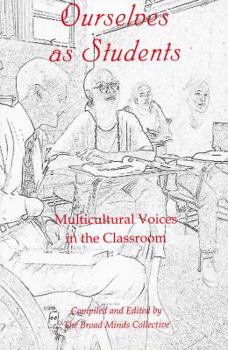Ourselves as Students: Multicultural Voices in the Classroom
These essays by Old Dominion University students deal with two questions: What impact do their own race, class, gender, and ethnic identities have upon them as students? How do their culture and the university culture interact to affect their ability to learn?
The focus of these essays is on the overlap between the students' identities as students and their identities based on gender, race, class, and ethnic origin. The project began as an assignment in a women's studies class at Old Dominion University in 1993, when students in a mixed graduate and undergraduate course were asked to write a brief analysis of themselves as students, accounting for the impact of gender, race, and social class on what they studied, what they heard in class, how they were treated in the classroom, how they treated others there, and what their level of comfort in the university was. Invited to add other variables, such as religion, nationality, age, sexual orientation, or disability-- if they considered these significant to their identities as students--the students were urged to consider not only the disadvantages these various identities gave them but also the privileges and advantages.
The resulting essays stimulated great interest in what students had to say and led to the formation of The Broad Minds Collective--made up of four students from the class as well as its instructor--which set about the task of soliciting and collecting additional essays. Although most essays contain overlapping themes, the editors detected four motifs that encompass virtually every essay included in the book. In the section "Cultural Perceptions and Assumptions," students show their awareness of how culturally defined categories affect education.
Essays in "Belonging and Alienation in the Classroom" discuss the students' level of comfort in the classroom and the degree to which they feel they belong at the university. The essays in "Making Sense of Our Lives Through Education" reveal the students' use of education to learn more about the forces that shape them. "In Search of an Education" highlights students' efforts to wrest what they feel they need from a college education.
Rather than presenting a "multicultural educational theory" or conducting a sterile sociological study, The Broad Minds Collective has allowed students to speak for themselves. Abstraction is replaced by stories of personal conflict, struggle, and victory.





